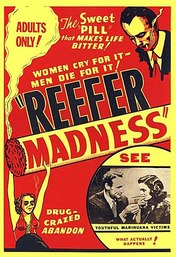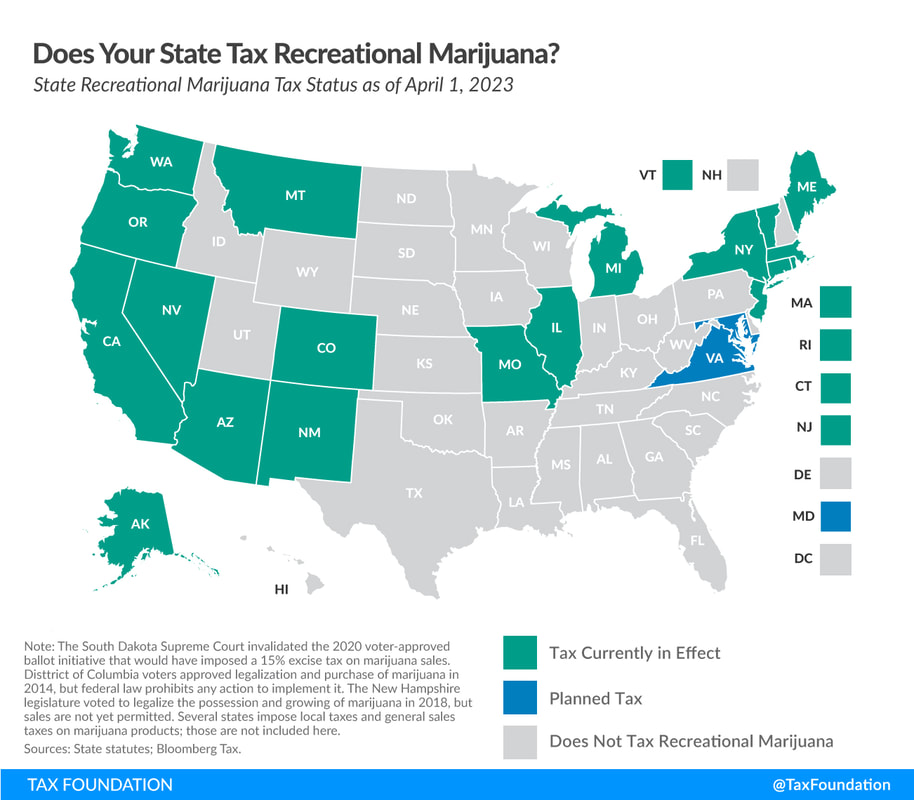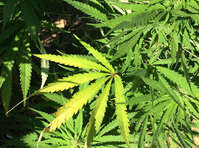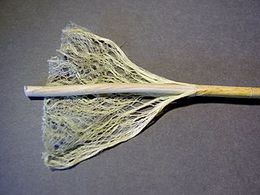-- Marijuana Resources:
News, legislation, dispensaries
Health
* Status * Hospitals * Insurance/HMOs
* Medical schools * Consumer information * Economic impact
* Status * Hospitals * Insurance/HMOs
* Medical schools * Consumer information * Economic impact
|
New!
* Online gambling * Gambling Strategies * Filing a Complaint * Starting a Business * Operating a Business * Financing a Business * Finding a Job * Hiring a Lawyer * Social Media Links * Media/Opinion/Blogs * Leading companies * e-books * Anthology-Quotes, jokes & thoughts * Public Universities & Colleges * Hospital Ratings & Profiles * Image Gallery-Princeton Visit our * NJ Product Store * History
|
 Cannabis seeds. Image: Wikimedia Commons Cannabis seeds. Image: Wikimedia Commons
-- Overview
Marijuana refers to the dried leaves, flowers, stems, and seeds from the Cannabis sativa or Cannabis indica plant. 'Hemp' is the fiber and seed part of the Cannabis plant, in contrast to the flower part of the plant which is 'legally considered' marijuana. The seeds of the marijuana plant contain the mind-altering chemical Tetrahydrocannabinol ('THC') and other similar compounds. THC can bind to CB1 and CB2 receptors in the brain, stimulating the release of dopamine which creates a sense of euphoria and relaxation. Marijuana's effectiveness as a pain reliever, while lacking conclusive studies, is also supported by anecdotal accounts of users which has led to broad legalization for its medicinal use. - Legal developments On February 20, 2021, Governor Phil Murphy signed into law the New Jersey Cannabis Regulatory, Enforcement Assistance and Marketplace Modernization Act. Among other things, the law authorized the sale and possession of up to six ounces of marijuana for recreational use by those aged 21 and over. The implementation of the Act, however, is also subject to regulations by the new commission to outline the standards for distribution and sale and to issue licenses for retail dispensaries and other market participants. The new laws also prohibit law enforcement officers from using the smell of cannabis as probable cause to search a person, automobile, or residence. The legislation followed a referendum approved by voters by a 67% to 33% margin at the general election in November 2020 to legally sanction the sale of cannabis by amending the state constitution, effective January 1, 2021, to legalize the recreational use of marijuana for adults aged 21 and older and legalizing the cultivation, processing, and sale of retail cannabis. Current New Jersey law prohibits home cultivation and the possession of a marijuana plant for any purpose, despite being legalized for possession and use. New Jersey consumers are required to pay a 6.625% sales tax plus a social equity excise fee of 1/3 of 1% on every purchase of marijuana for personal use. Patients are required to pay a 2% sales tax on every purchase of medical marijuana. All tax revenues are placed in a fund with 15% going to an account for underage deterrence and prevention. At least 70% of the remaining revenue is apportioned for investments in impact zones or areas that have been disproportionately affected by marijuana-related arrests. Purchasers are required to submit a government-issued identification card to ensure they are 21 years or older. From July 2022 through June 2023, New Jersey dispensaries sold more than $734 million in cannabis products, according to the New Jersey Cannabis Regulatory Commission. The vast majority of sales came from recreational marijuana customers, who spent over $555 million as the number of dispensaries has continued to grow. Medical cannabis sales have declined over 44% since April 2022, while adult use cannabis sales adult use sales have increased by almost 40%. Pursuant to the new law, licenses are available for six different sectors of the cannabis market: cultivator, manufacturer, wholesaler, distributor, retailer, and delivery. The first retail sales commenced in April 2022. According to the New Jersey Cannabis Regulatory Commission, there were nearly $200 million in marijuana sales across the state in the second and third quarters of 2022. Under the New Jersey laws, purchases are limited In each transaction to the equivalent of 28.35 grams or 1 ounce of usable cannabis, which means up to 28.35 grams (1 ounce) of dried flower, or 4 grams of solid cannabis concentrates or resin, or the equivalent of 4 grams of concentrate in liquid form (solution in milliliters), or 4 grams of vaporized formulations (oil), or 1000 mg of multiple ingestible cannabis-infused products (10 100 mg packages) like gummies. A purchase of a combination of products may be 1/2 ounce of dried flower plus 2 grams of concentrate, or 5 packages of gummies and 1/2 ounce of dried flower. In March 2023, an eighth-ounce of legally purchased cannabis costs as much as $65 after tax at the 24 dispensaries currently open for "adult use" sales. The law authorizing recreational marijuana sales also states that at least 15% of licenses must go to people of color and 15% to women and disabled veterans, but critics have pointed to continuing obstacles, including financial hurdles and local opposition, in achieving more equitable license approvals and retail openings . Since allowing marijuana to be prescribed for specific medical conditions in 2010, the state government under the administration of Governor Murphy, which took office in January 2018, has expanded the scope of allowed medical uses, adding such conditions as anxiety, migraines, Tourette’s syndrome, chronic pain related to musculoskeletal disorders and chronic visceral pain. The state also is expanding the number of retail medical marijuana dispensaries. Licenses for medical patient users grew from 15,000 in 2018 to some 115,000 in 2023. In November 2023, the Asbury Park Press published a survey which reported that the price of legal weed in New Jersey was as low as $20 in some parts of the state, but the average price at all 76 dispensaries it reviewed for an eighth of an ounce was $46.17 for recreational customers and $42.34 for medical marijuana patients. The state legislature has also enacted laws to expunge past convictions for minor possession offenses. With over 30,000 marijuana possession arrests each year, New Jersey had the highest arrest rate in the nation by local police departments, some of which reported that more than a third of their total arrests within their jurisdiction were for marijuana offenses. * Licensed medicinal or recreational cannabis dispensaries, New Jersey Cannabis Regulatory Commission * NJ has some of the most expensive legal weed in the country. Here's why, 3/27/2023, APP.com * Here's where you can buy NJ legal weed and medical marijuana across the state, 11/2322, APP.com * New Jersey Cannabis Regulatory, Enforcement Assistance, and Marketplace Modernization Act * New Jersey Marijuana Laws, PotGuide.com * what's legal under New Jersey's updated marijuana laws, Leafly.com * One year after legalization, marijuana’s social-justice promise falls short, 4/20/2023, NJSpotlightnews.org * New Jersey Cannabis Trade Association * New Jersey CannaBusiness Association -- History and regulation Hemp fiber has been used for centuries to make rope, paper, canvas and clothing. Commencing soon after settlement of the American colonies, hemp production was encouraged--or indeed mandated--as illustrated by a 1619 Virginia law requiring every farmer to grow hemp. And in Pennsylvania, Virginia, and Maryland, hemp was recognized as legal tender in the exchange of goods.  1936 poster promoting film. Image: Wikimedia Commons 1936 poster promoting film. Image: Wikimedia Commons
Domestic production flourished until after the Civil War, when imports and other domestic materials replaced hemp for many purposes. In the late nineteenth century, as the practical applications of hemp declined, marijuana became a popular ingredient in many medicinal products, including elixirs and potions, and was sold openly in public pharmacies.
After the Mexican Revolution of 1910, Mexican immigrants to the U.S., introduced more widespread recreational use of marijuana. The drug became associated with the immigrants, along with the prejudice against the Spanish-speaking newcomers held by prior residents of the areas in which they settled. Anti-drug campaigners warned against what they saw as the encroaching "Marijuana Menace," and attributed terrible crimes caused by marijuana and the Mexicans who used it. Efforts to restrict marijuana use began in the early years of the twentieth century as individual states began to enact laws on the 'sale of poisons' to mandate improved disclosure and labeling of potions, pills and other goods sold as medicinal or health products. Although these laws were primarily intended to limit the distribution of such products as arsenic and opium, some of the laws also specifically mentioned cannabis among the restricted 'poisons.' The federal Pure Food and Drug Act of 1906 required that certain special drugs, including cannabis, be accurately labeled with their contents. The 1906 law later was updated by Congress to become the Pure Food, Drug, and Cosmetics Act of 1938 which remains in effect today, creating the framework for regulating prescription and non-prescription drugs and foods, along with establishing the new enforcing agency as the Food and Drug Administration. Marijuana remains under this law defined as a 'dangerous drug.' By the mid-1930s cannabis also was regulated as a drug in every state, including 35 states that adopted the Uniform State Narcotic Drug Act. President Franklin D. Roosevelt and Harry J. Anslinger, the head of the Federal Bureau of Narcotics, supported a nationwide media campaign promoting adoption of the Act by the states, which included claims that marijuana caused temporary insanity, illustrated by advertisements depicting young people smoking marijuana and then behaving recklessly, committing crimes, killing themselves and others, or dying from marijuana use. In 1936, the propaganda film 'Reefer Madness' was made in an attempt to scare youth from using marijuana, stating that marijuana caused insanity and featuring a woman smoking marijuana, then laughing while a man who also had used marijuana beats a third person to death. Following the film's release, a series of Reefer Madness-inspired images, novels, songs, and movie posters were produced which featured explicit images of devilish creatures and seduced females depicting the wrecked lives of those who smoked marijuana. The national propaganda campaign contributed to the passage by Congress of the Marijuana Tax Act of 1937, which effectively criminalized marijuana, restricting possession of the drug to individuals who paid an excise tax for certain authorized medical and industrial uses. 'Reefer Madness,' produced in 1936, one of a series of anti-marijuana films commissioned by the federal government.
-- Federal Controlled Substances Act and Anti-Drug Abuse Act Under the federal Controlled Substances Act (CSA) approved in 1970, cannabis was officially outlawed for any use, including medical treatment. The CSA provides for the periodic updating of schedules classifying drugs and delegates authority to the Attorney General, after consultation with the Secretary of Health and Human Services, to add, remove, or transfer substances to, from, or between schedules classifying five classes of 'controlled substances' with Schedule I drugs like marijuana prohibited from use as lacking 'a useful and legitimate medical purpose.' Other drugs, such as the common painkillers Adderall and Ritalin, are classified as Schedule II drugs. The federal CSA and complementary state legislation also contributed to a surge in law enforcement actions targeted at drug offenders, with marijuana widely viewed as a 'gateway' leading to use of addictive drugs like amphetamines and heroin. Under New Jersey law, marijuana was included as a 'narcotic drug' under N.J.S.A. 24:18-4 which makes it unlawful for any person "to manufacture, possess, have under his control, sell, prescribe, administer, dispense or compound any narcotic drug.' The wide scope of local law enforcement in the state on marijuana was illustrated in the 1970 case of State v. Ward, 57 NJ 75, where a Vineland high school student without any prior arrests was arrested, convicted and sentenced to a two- to three-year prison term at Trenton State Prison for possession of a minimal amount of marijuana seeds in a pipe stem he had in his drawer in his bedroom dresser, a decision in which the New Jersey Supreme Court harshly criticized the severity of the trial judge's sentence and directed that in most cases future first-time marijuana possession offenders should be given probation--the first such judicial mandate in the nation. The Anti-Drug Abuse Act of 1986, signed by President Reagan as a highlight of his wife Nancy's 'Just Say No' anti-drug campaign, reinstated mandatory prison sentences for illegal drug distribution, including large scale cannabis distribution; a subsequent amendment created a 'three-strikes' law, which set mandatory 25-year prison sentences for repeated serious crimes–including certain drug offenses–and allowed the death penalty to be used against 'drug kingpins.' Several efforts through legislation or regulatory action to reschedule cannabis under the CSA have failed, and the US Supreme Court has ruled in United States v. Oakland Cannabis Buyers' Cooperative, 532 US 543, (2001) and Gonzales v. Raich, 545 US 1, (2005) that the constitutional power to regulate interstate commerce supports the federal government's right under the CSA to regulate and criminalize cannabis, even for medical purposes. The Trump Administration also rejected any administrative effort to reclassify marijuana. In March 2018, Attorney General Jeff Sessions declared before a gathering of law enforcement officials that marijuana is “only slightly less awful” than heroin, going on to say, “I reject the idea that America will be a better place if marijuana is sold in every corner store.” After taking office, President Biden, who during his time in the Senate had opposed legalization, avoided taking a firm position, but said that he didn’t believe “anyone should be in prison for the use of marijuana” and in April 2022 granted clemency to over 70 people convicted of cannabis-related crimes. Other Democrats, however, called on more assertive action from the White House to repeal federal laws and regulations prohibiting retail sales of marijuana. Despite the resistance to ease federal marijuana laws and regulation, 31 states, as well as the District of Columbia, Guam and Puerto Rico, have legalized cannabis for treatment of specific medical conditions, and ten states and the District of Columbia had legalized the drug for recreational purposes. Thus, given the conflicts between federal and state laws, even where citizens are using cannabis in compliance with state law, those individuals and businesses involved in distribution and use may still be prosecuted by federal authorities for violating federal law. This situation has led to some businesses, particularly banks and credit card companies, to refrain from offering their services in marijuana transactions legal under state law, thus complicating transactions and forcing both legal buyers and sellers to resort to cash. 
-- New Jersey medical marijuana program New Jersey enacted legislation in January 2010--the New Jersey Compassionate Use Medical Marijuana Act--to allow the legal sale of marijuana for designated medicinal purposes. The bill was signed by Governor Jon Corzine shortly before he left office and was succeeded by Governor Chris Christie. The law does not allow patients to grow their own marijuana, but requires that the plant be acquired through "alternate treatment centers" licensed by the state, with caregivers for patients permitted to collect marijuana on behalf of the patient only after clearance though criminal background checks. The Christie administration sharply narrowed the scope of the legislation through adopting regulations criticized as preventing many potential users from participating, with the Governor describing medical marijuana programs as "a front for legalization." Since Governor Murphy took office, New Jersey’s Medicinal Marijuana Program has been revised to eliminate many of the restrictions imposed during the Christie Administration. tripled the number of patients to over 50,000 and nearly doubled the number of participating physicians to 1,000. Under New Jersey medical marijuana law, physicians determine the dosage allowed for the patient, with a cap set at 3 ounces for a 30-day period, thus prohibiting patients from possessing more than 3 ounces of cannabis at any given time. * Medical Marijuana Program, New Jersey Department of Health
* Marijuana as Medicine, National Institute on Drug Abuse * Medical Marijuana FAQ, WebMD.com - Government * New Jersey Cannabis Regulatory Commission * New Jersey Compassionate Use Medical Marijuana Act * Medical Marijuana Program, New Jersey Department of Health * MMP Directory (dispensary directory with available strains) * NJ Physicians Licensed for Marijuana Prescriptions, NJ Department of Health * Substance Abuse and Mental Health Services Administration, US Department of Health & Human Services * The Cannalysts (financial and qualitative analysis of cannabis industry) - Media
* NJCannabisInsider.com (weekly subscription service published by NJAdvance.com) * New Jersey Marijuana Legalization News, NJlegalize.me * Leafly.com (marijuana news, products, directories) * Cannabiz Media (business networking and investing in North America) * Marijuana Moment (global news) |
|

